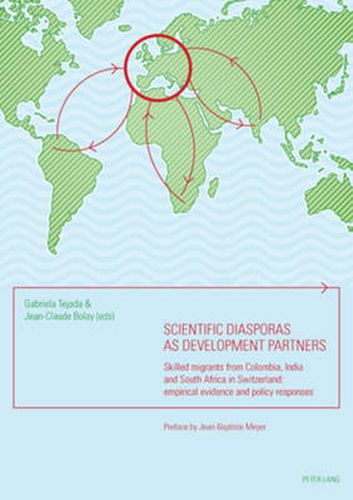Readings Newsletter
Become a Readings Member to make your shopping experience even easier.
Sign in or sign up for free!
You’re not far away from qualifying for FREE standard shipping within Australia
You’ve qualified for FREE standard shipping within Australia
The cart is loading…






This title is printed to order. This book may have been self-published. If so, we cannot guarantee the quality of the content. In the main most books will have gone through the editing process however some may not. We therefore suggest that you be aware of this before ordering this book. If in doubt check either the author or publisher’s details as we are unable to accept any returns unless they are faulty. Please contact us if you have any questions.
Over the last two decades, globalisation has accelerated international migration flows, particularly of skilled labour. Yet increasing migration by skilled workers from developing countries ( brain drain ) has raised serious concerns internationally about the adverse development impact on their countries of origin. This book, however, highlights the positive aspects of skilled labour migration as scientific diasporas are playing a growing role in the transfer of technology, skills and knowledge ( brain gain ) to their home countries. This is a very significant development in a globalised world where science, technology and knowledge can trigger economic and social transformations. The book presents solid empirical evidence of the contributions scientific diasporas make to their countries of origin, based on primary surveys of skilled migrants from Colombia, India and South Africa employed in Switzerland, a major destination country. The findings lead to a better understanding of the motives for migration, the profile of the scientific diaspora communities in Switzerland, and the varied ways in which they help their home countries. The book makes a significant contribution to the international policy debate and dialogue on migration and development. In particular, it shows how to leverage the potential of scientific diasporas as agents of home country development, by identifying good practices and offering specific recommendations for the countries of origin and of destination.
$9.00 standard shipping within Australia
FREE standard shipping within Australia for orders over $100.00
Express & International shipping calculated at checkout
This title is printed to order. This book may have been self-published. If so, we cannot guarantee the quality of the content. In the main most books will have gone through the editing process however some may not. We therefore suggest that you be aware of this before ordering this book. If in doubt check either the author or publisher’s details as we are unable to accept any returns unless they are faulty. Please contact us if you have any questions.
Over the last two decades, globalisation has accelerated international migration flows, particularly of skilled labour. Yet increasing migration by skilled workers from developing countries ( brain drain ) has raised serious concerns internationally about the adverse development impact on their countries of origin. This book, however, highlights the positive aspects of skilled labour migration as scientific diasporas are playing a growing role in the transfer of technology, skills and knowledge ( brain gain ) to their home countries. This is a very significant development in a globalised world where science, technology and knowledge can trigger economic and social transformations. The book presents solid empirical evidence of the contributions scientific diasporas make to their countries of origin, based on primary surveys of skilled migrants from Colombia, India and South Africa employed in Switzerland, a major destination country. The findings lead to a better understanding of the motives for migration, the profile of the scientific diaspora communities in Switzerland, and the varied ways in which they help their home countries. The book makes a significant contribution to the international policy debate and dialogue on migration and development. In particular, it shows how to leverage the potential of scientific diasporas as agents of home country development, by identifying good practices and offering specific recommendations for the countries of origin and of destination.